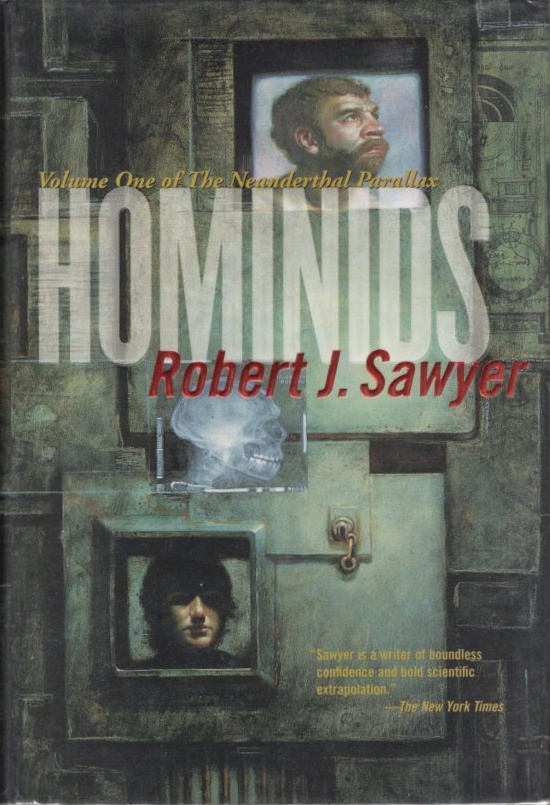Robert J. Sawyer's SF novels are perennial nominees for the Hugo Award, the Nebula Award, or both. Clearly, he must be doing something right, since each novel has been something new and different. What they do have in common is originality, great stories, and unique scientific extrapolation. His latest is no exception.
A complete and satisfying novel in itself, Hominids is also the first book of The Neanderthal Parallax, a trilogy that will examine two unique species of people. They are alien to each other, yet alike in their never-ending quest for knowledge and essential humanity. We are one of those species, the other is the Neanderthals of a parallel world where they, not Homo sapiens, became the dominant intelligence. In that world, Neanderthal civilization has reached heights of culture and science comparable to our own, but with a radically different history, society, and philosophy.
During a quantum computing-experiment, Ponter Bodddit, a Neanderthal physicist accidentally pierces the barrier between worlds and is transferred to our universe. He is almost immediately recognized as a Neanderthal, but only much later as a scientist. He is quarantined and studied, alone and bewildered, a stranger in a strange land. But Ponter is also befriended by a doctor and a physicist who share his questing intelligence and boundless enthusiasm for the world's strangeness,
as well as by Canadian geneticist Mary Vaughn, a woman with whom he develops a special rapport.
Meanwhile, Ponter's partner, Atikor Huld, finds himself with a messy lab, a missing body, suspicious people all around, and an explosive murder trial. How can he possibly prove his innocence when he has no idea what actually happened to Ponter?
Contact between humans and Neanderthals creates a relationship fraught with conflict, philosophical challenge, and the threat to the existence of one species or the other—or both. Yet their meeting is also rich in possibilities for cooperation and growth on many levels, from the practical to the aesthetic to the scientific to the spiritual. In short, Robert J. Sawyer has done it again.


